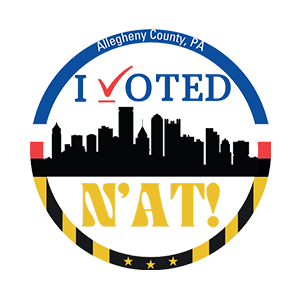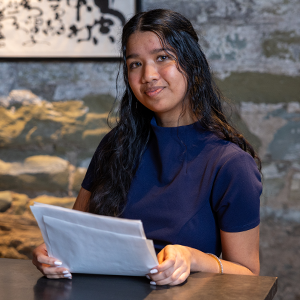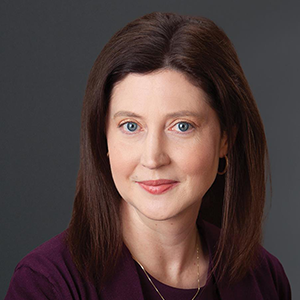A Whitehall Welcome

What do the far-off countries of Nepal and Bhutan, a smallish one-story building in Whitehall tucked between the community pool and the police station, and Mt. Lebanon all have in common?
Why, Paula Kelly, of course.
Kelly, Jonquil Place, has been the director at the Whitehall Public Library since 2009. Under her guidance, the community resource has gone from the little library that could to the little library that really does.
Kelly was one of 10 librarians nationwide who were honored with the American Library Association’s I Love My Librarian Award in 2018. The award was partly in recognition of the programs the Whitehall Library offers for its newest neighbors, primarily Nepalese and Bhutanese families.
This year, Whitehall was one of two honorable mentions for Library Journal’s Best Small Library in America Award, given to exemplary libraries in towns with a population under 25,000.
Kelly, 61, grew up in Whitehall and recalls it being pretty traditional.
“Very white. Very Catholic. Working class,” she says. “And then it was fascinating to watch the population shift as refugees began to be settled here, which started in the late 1990s.”
First, it was primarily Bosnians and Eastern Europeans, then people resettling from African countries. “The library was very responsive to that change in the community,” she says.
Unlike the other groups, which mostly saw Whitehall as a landing spot before moving on, many Bhutanese and Nepalese are settling there, buying homes and starting small businesses. “They want to make the community their forever home, which is wonderful,” says Kelly.
The library has offered citizenship-related programming and even hosted two naturalization ceremonies, and has taken part in a program to introduce the relocated families to Whitehall. “We had everybody from the mayor to the tax collector and everybody in between, and we had translation services for that,” Kelly says.
Kelly has partnered with Renee Christman, an English as a Second Language teacher in the Baldwin-Whitehall School District, to publish 13 books in a series called Saving Stories (savingstories.community, available on Amazon and, of course, the library). Saving Stories are bilingual books letting community members from other countries tell their stories in English and their native language, whether it’s a traditional folktale or other narrative. The series features books in Nepali, Karen, Pashtu, Dinka and Arabic, illustrated by local professional artists, funded through a grant.
“She’s an amazing director,” says Sarah Scott, Whitehall reference librarian. “Previously, I came from a library that was a great place to work, but didn’t have that same kind of fostering atmosphere. Paula’s very forward-thinking. She’s always thinking, ‘What else can libraries do? Where can we go from here?’”

Kelly’s mother worked at the library, so she was a regular growing up. But she got a degree in environmental science and worked at an engineering firm for a time. Then, when sons Josh and Patrick got a little older, she took a part-time job at the library just to get back into the workforce.
That turned into a full-time clerk position managing the front desk. Then came a divorce, and Kelly decided to get a master’s of library and information services degree from Pitt. She happened into the directorship six weeks before graduation when the job unexpectedly opened.
In addition to overseeing the wide range of programs and offerings and encouraging her staff to be as creative and thoughtful as she is, Kelly is active in the Whitehall Chamber of Commerce, the Jefferson Regional Foundation and all sorts of other organizations.
“You have to be visible,” she says. “I just try to be the face of the library out in the community as well as in the library itself.”
Brandon Taper, the adult services coordinator, began a Just Ask Series. Someone from a particular profession comes in and answers whatever questions people have. One of them was a rabbi, which speaks to the way Taper came up with the program.
“When I first started, I noticed I was getting a lot of questions about Judaism and Jewish culture because I was the first Jewish person a lot of people had seen,” Taper says. “Some people wanted to touch my (very curly) hair. So I started this program.”
Kelly has five full-time and, depending on the season, 10 to 12 part-time staff members, and she’s proud of the many programs they have come up with.
The library also goes on the road, popping up with games, crafts and books at all sorts of events, such as movie nights at the pool or an open house at a local preschool.
“It’s amazing what we do with the resources we have and the amount of staff we have, “Kelly says. “We rock and roll pretty good here.”





